Young Lives exhibited a brand new photo exhibition at UNICEF's 'We Deserve Better' event during this year's UN Commission on the Status of Women (CSW68). The exhibition is about the challenges girls and young women face as they grow up amid global crises and how gender-responsive social protection can help address the barriers holding them back. Scroll through the 12 images and accompanying annotations to find out more.
The children and families who participate in Young Lives share with us a great deal of personal information about their daily lives and it is important that we protect their anonymity and confidentiality. The photos in this exhibition are not of the Young Lives study children but are of children living in similar circumstances and communities.
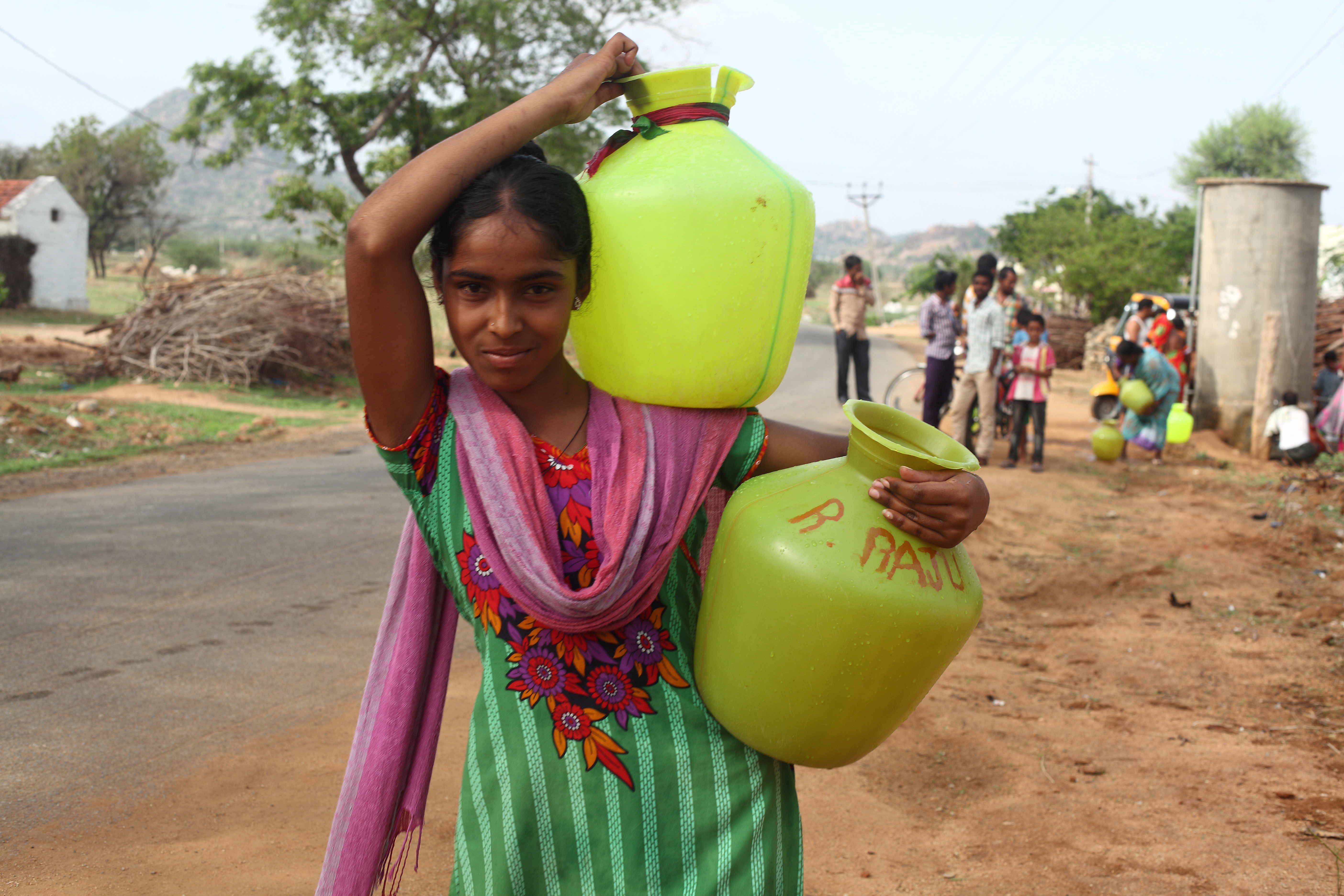
Young Lives is a unique longitudinal study that has been following the lives of 12,000 young people in Ethiopia, India (in the states of Andhra Pradesh and Telangana), Peru and Vietnam since 2001.
Originally set up to follow children born at the launch of the Millennium Development Goals, Young Lives provides vital insights into the consequences of growing up in poverty and inequality, informing policies and programs to achieve the Sustainable Development Goals.
This exhibition illustrates the challenges girls and young women face as they grow up amid increasing global crises. The accompanying text highlights how gender-responsive social protection can help address the underlying barriers holding women and girls back.
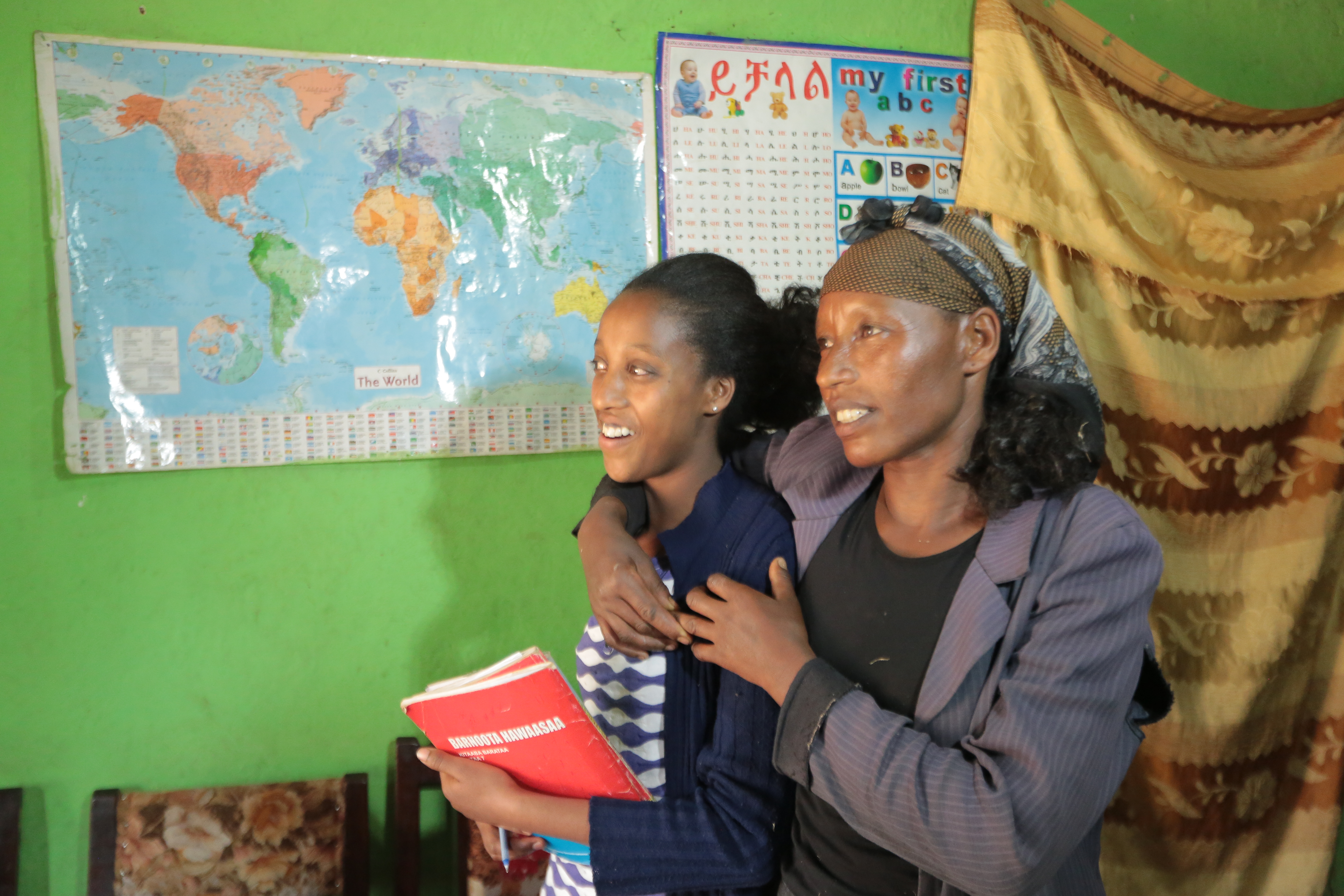
Mulu is a young Ethiopian woman who had to work after the death of her father and struggled throughout childhood to stay in school. She is now at university, and says,
‘My life will be better than my mother’s because I am educated.’
Like Mulu, many young people in the study have experienced significant improvements in their living standards over the last two decades as global poverty rates have fallen. However, recent global crises, including climate shocks, the COVID-19 pandemic and armed conflict in Ethiopia, threaten to reverse this progress. Inequalities are widening, leaving the poorest and those living in rural or minority communities behind.
Young Lives evidence shows that in times of crises, households tend to revert to traditional, patriarchal gender roles. During the pandemic, women and girls suffered disproportionately from the combined pressures of interrupted education and job losses, alongside increased domestic and unpaid care work.

Experiencing climate shocks – such as drought or floods – early in life can affect children’s growth, nutritional health, skills development and progress in school, with the poorest children significantly more affected.
Young Lives evidence in Ethiopia and Peru shows that social protection, in the form of cash or food transfers and public work schemes, can mitigate the negative effects of early poverty and climate shocks on children’s nutritional health, physical growth and foundational cognitive skills – the basic building blocks for lifelong learning, such as long-term memory and task concentration.

Young Lives’ evidence shows that the impact of climate shocks on pregnant women’s nutrition has repercussions for their children’s skills development, even into adolescence.
Matching Young Lives and climate data in India reveals that a mother’s exposure to droughts or floods during pregnancy affects their children’s vocabulary at age 5 and their basic math and social and emotional skills right up until age 15.
Social protection programs should target adolescent girls, pregnant women and young mothers who may be especially vulnerable to nutritional deficits caused by climate shocks. Supporting young women is crucial not only to safeguard their own health and well-being, but also for their future children’s long-term physical and skills development.
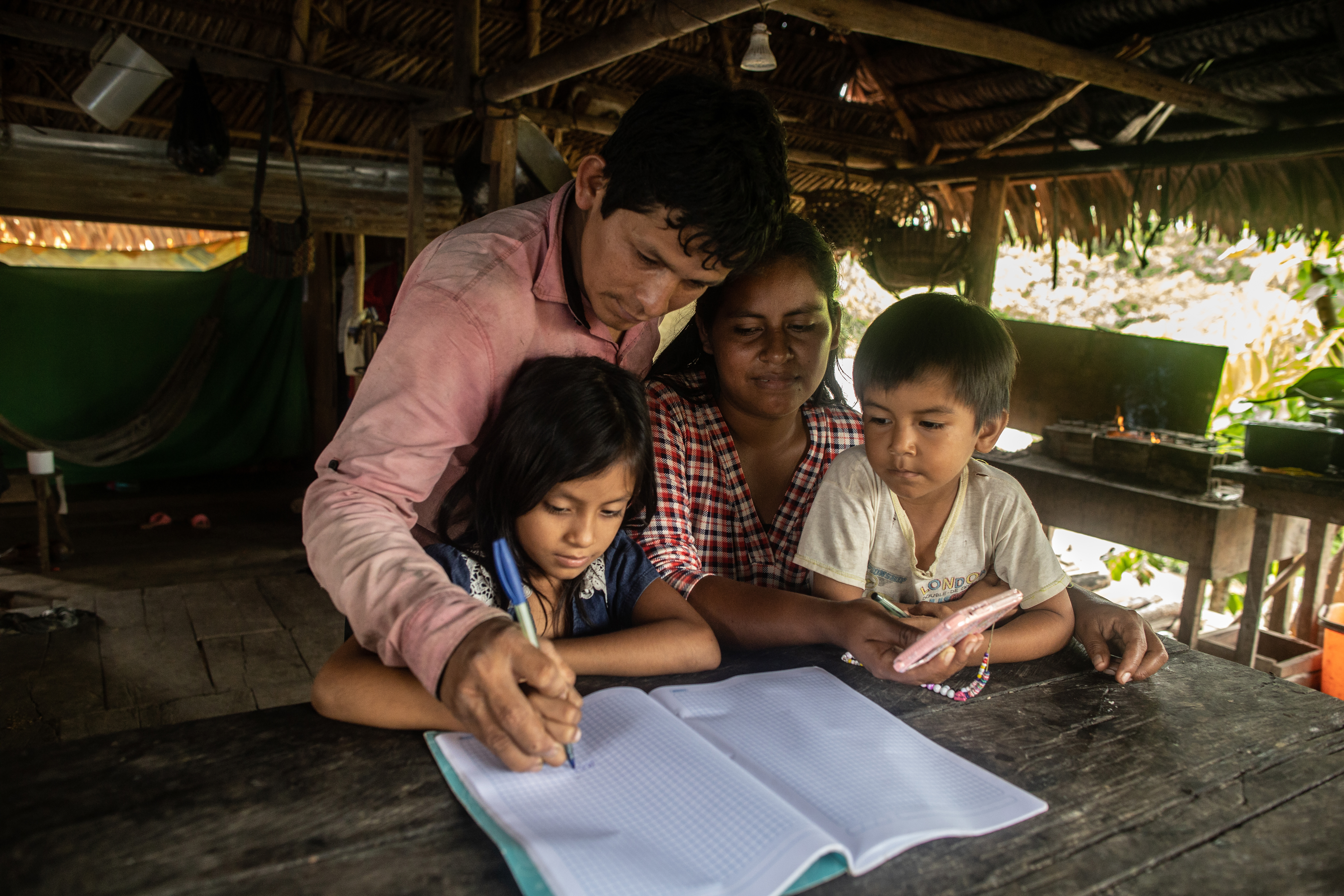
Children from the poorest households, rural areas and minority communities commonly underperform in skills and educational outcomes, with long-term effects on later education and employment opportunities.
Gender differences in skills emerge more strongly in adolescence, with variations across the Young Lives’ study countries exposing the impact of discriminatory gender norms. In India and Ethiopia, girls and boys have similar skills at age 8, but parents’ lower educational aspirations for their daughters are linked to significant gender gaps in math and literacy tests by age 15. Conversely, in Vietnam, girls outperform boys in both tests.
While investing in quality early learning is crucial for all children’s skills development, realizing the long-term benefits for girls requires addressing gender bias and providing a supportive and enabling environment with adequate nutrition, resources and time to study.
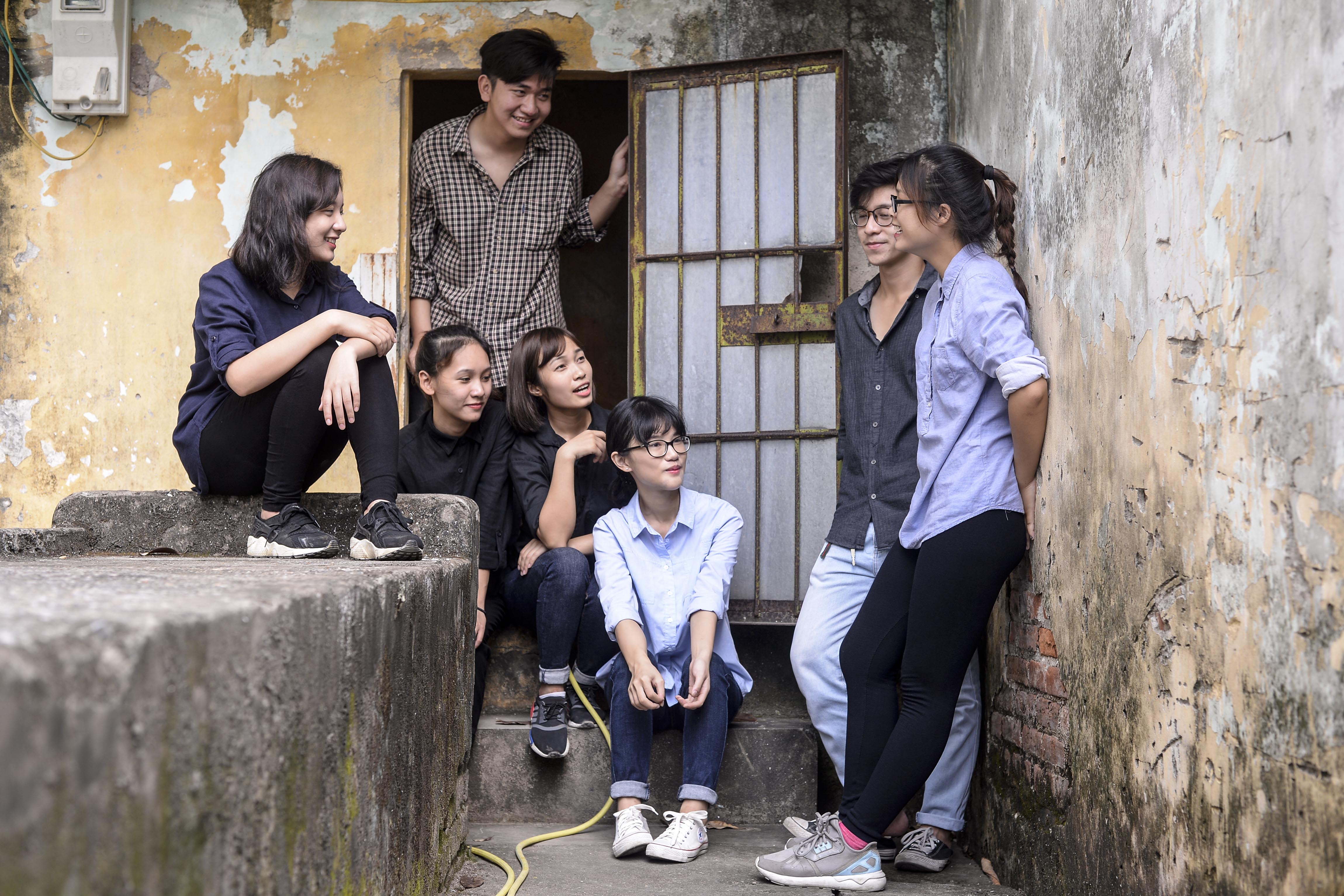
While girls and boys have similar social and emotional skills, notable gender differences emerge in late adolescence. In Ethiopia and India, adolescent girls typically develop lower levels of skills associated with empowerment, such as self-efficacy and agency, leaving many young women feeling less in control and less able to handle the challenges of work and family life.
However, gender differences in social and emotional skills are not universal or inevitable. Empowering young women with strong social and emotional skills requires comprehensive support tailored to girls at different ages, often combining education, life skills training and mentorship initiatives.
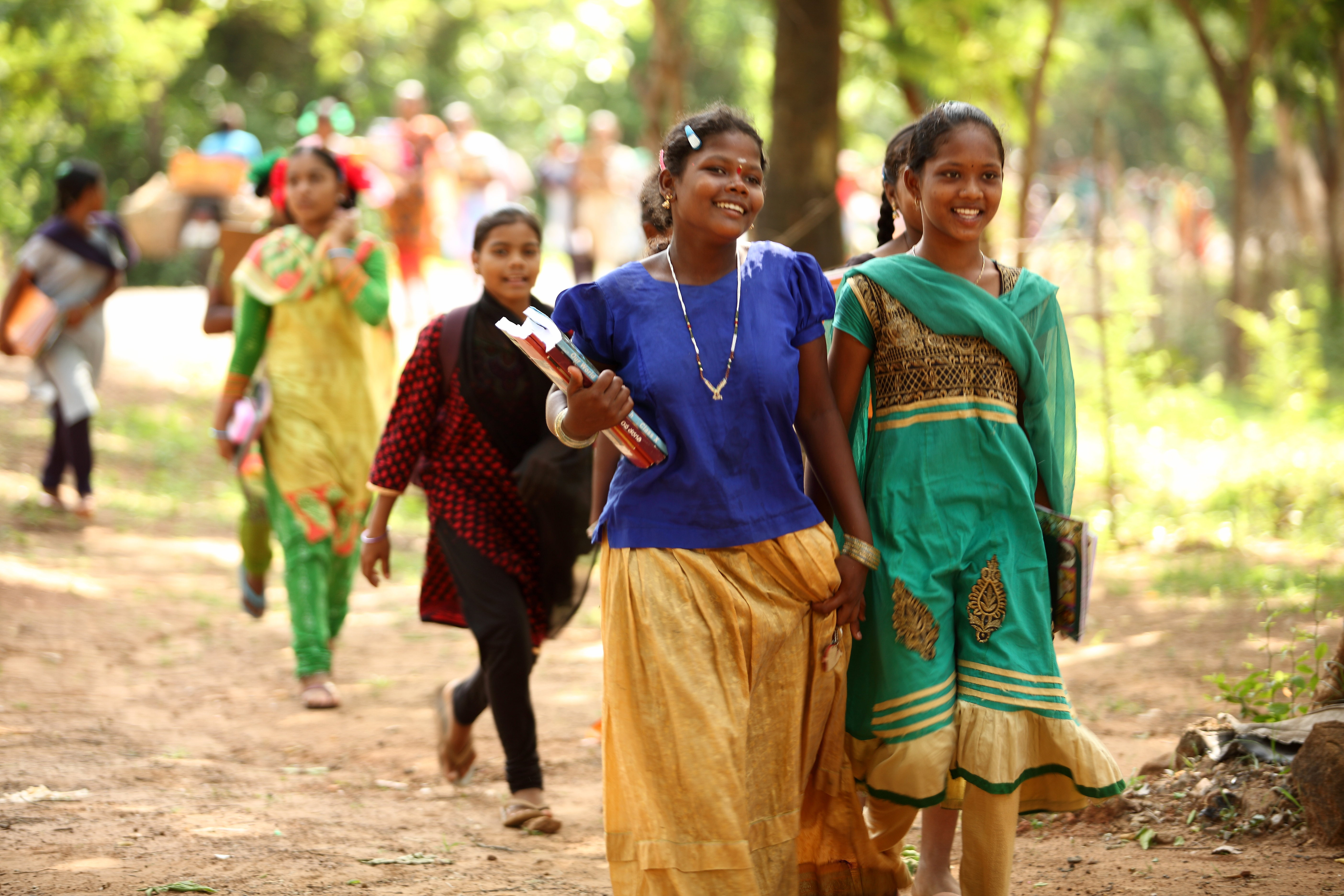
Young women continue to face obstacles in pursuing higher education, despite recent increases in enrolment. In India, young women are much less likely to complete higher education than young men, especially those from disadvantaged households and minority groups. In Peru, girls expect to earn less than boys, and young women are more likely to study subjects that lead to lower-paid jobs.
Creating supportive environments for girls and young women throughout their studies, ensuring sufficient resources and time to study, is crucial for higher education completion. This may involve expanding scholarships and accessible accommodation facilities, alongside challenging gender stereotypes both within the education system and across wider society.

While better skills can help young women access higher education and secure decent jobs, this is not guaranteed. Gender discrimination and socioeconomic constraints still hold many young women back, especially in times of crisis.
The pandemic significantly widened the gap between the numbers of young women and men in paid work, with women facing prolonged challenges in returning to work – if they were able to return at all – often due to increasing domestic and caregiving responsibilities.
Expanding access to and availability of childcare services is essential for reducing the barriers that hinder women from getting a decent job. This support can play a pivotal role in promoting gender equality and empowering women in the labour market.
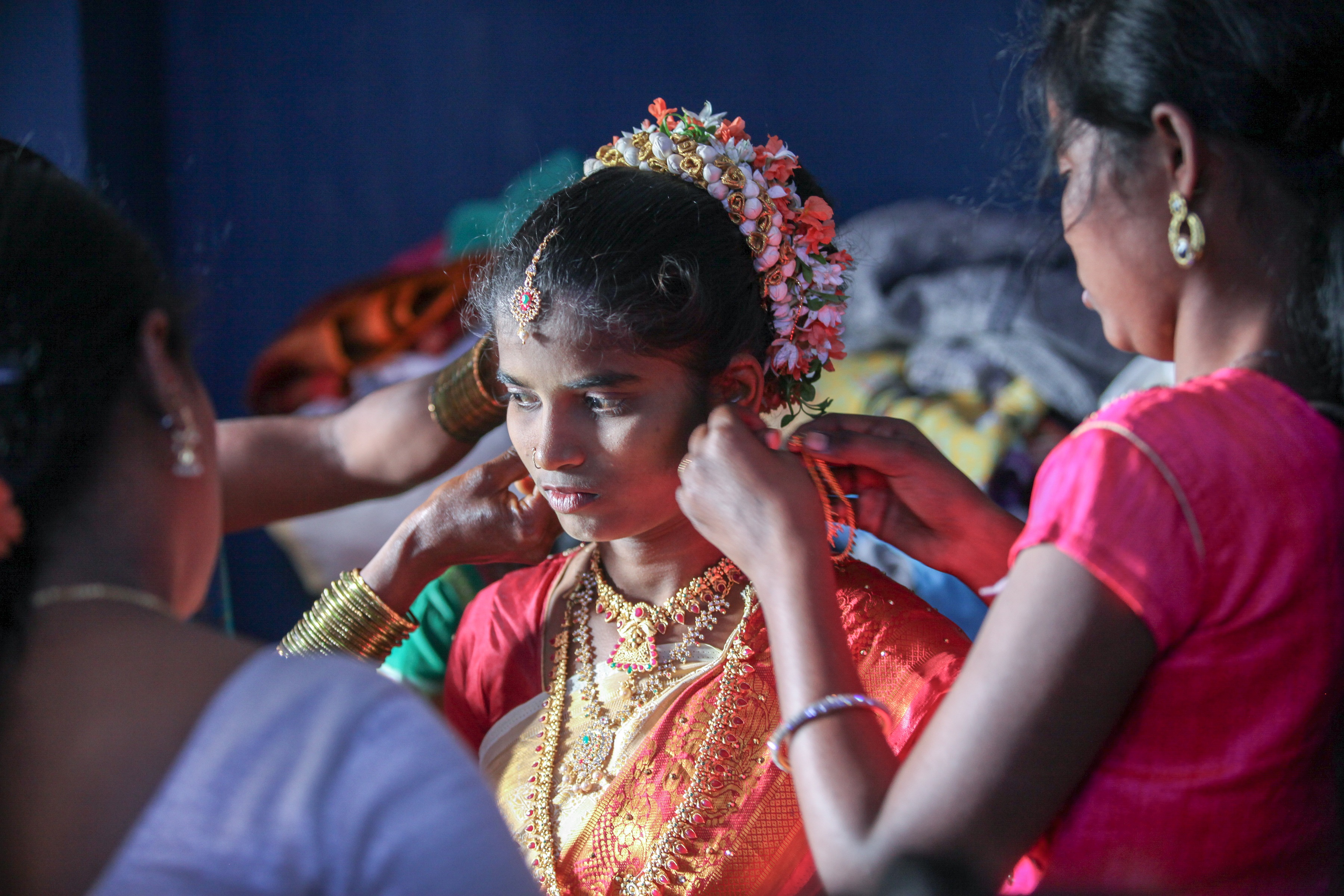
Despite falling rates, many girls still get married in their teenage years, particularly those in rural areas and those whose mothers are less educated. Girls who have dropped out of school by age 15 are at much greater risk of early marriage and pregnancy.
Social protection plays a crucial role in tackling the root causes of child marriage. Practical measures to reduce domestic work and increase access to sexual and reproductive health services can also empower girls to stay in school and delay marriage. In Ethiopia, girls benefiting from targeted support under the Health Extension Program are at lower risk of early marriage and pregnancy.
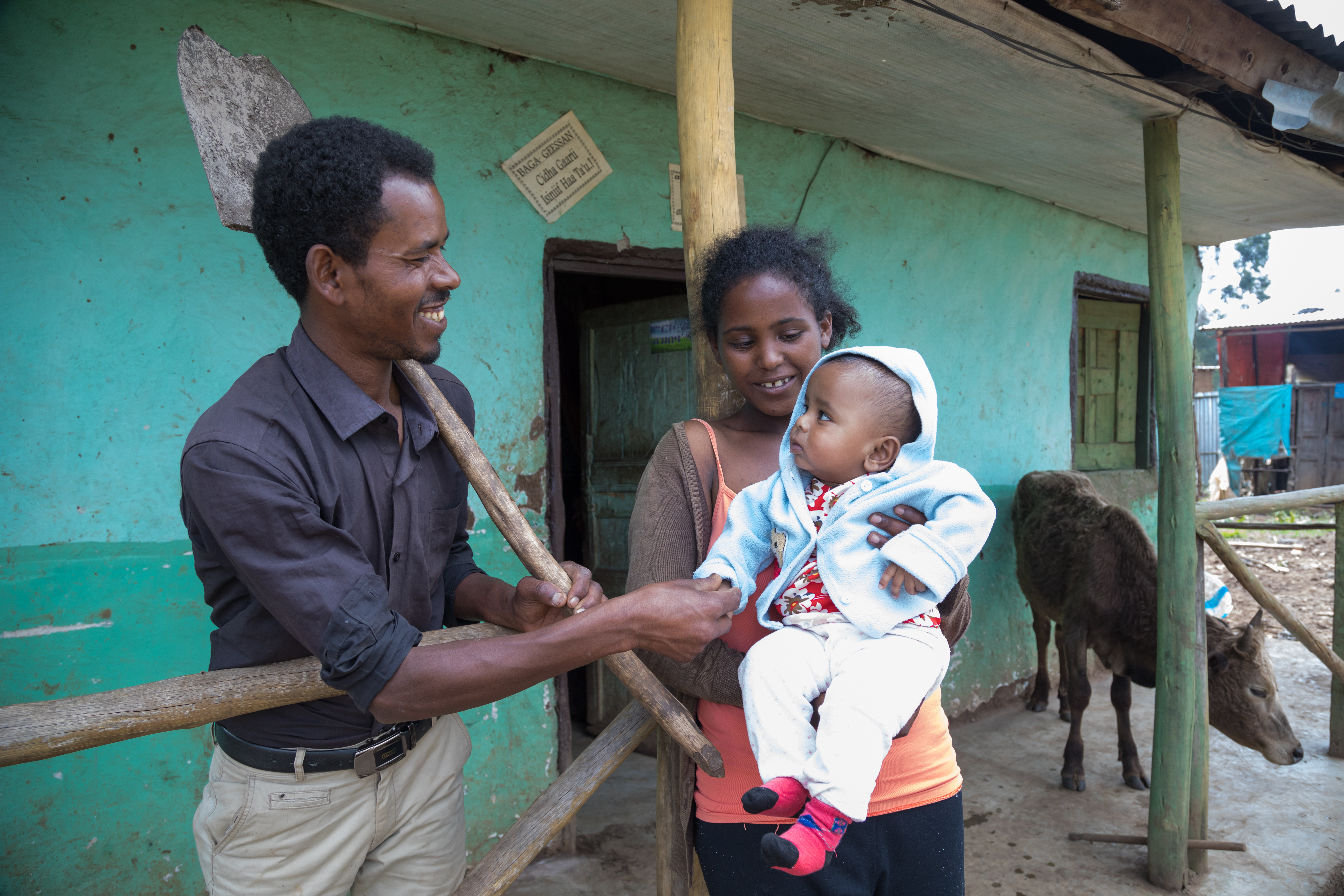
Persistent inequalities and patriarchal norms hinder women’s and girls’ awareness of SRH and access to appropriate services, particularly affecting those from the poorest households, and in rural and conflict-affected areas.
Improving the quality and accessibility of primary healthcare, including SRH services, should target adolescent girls and young women in rural areas, regardless of their marital status or financial means. Priority should be given to challenging gender stereotypes and reducing stigmas, which are often exacerbated during times of crises. These initiatives are more likely to succeed if they engage whole communities, including boys and men, working collaboratively with healthcare personnel, local leaders and civil society.

Global crises are taking their toll on young people’s mental health. Young women were significantly more vulnerable to anxiety as the COVID-19 pandemic became more severe, particularly those who spent additional time on childcare responsibilities. Ongoing conflict in Ethiopia is having a devastating effect on young people’s mental health, including through the debilitating effects of post-traumatic stress disorder (PTSD).
Alongside urgently needed mental health services and psychosocial support, social protection can play an important role in addressing some of the underlying risk factors threatening young people’s mental health, including food insecurity, job losses and financial hardship. Practical measures to relieve the burdens of domestic work and childcare responsibilities are important for protecting the mental health of young women and the next generation of children.
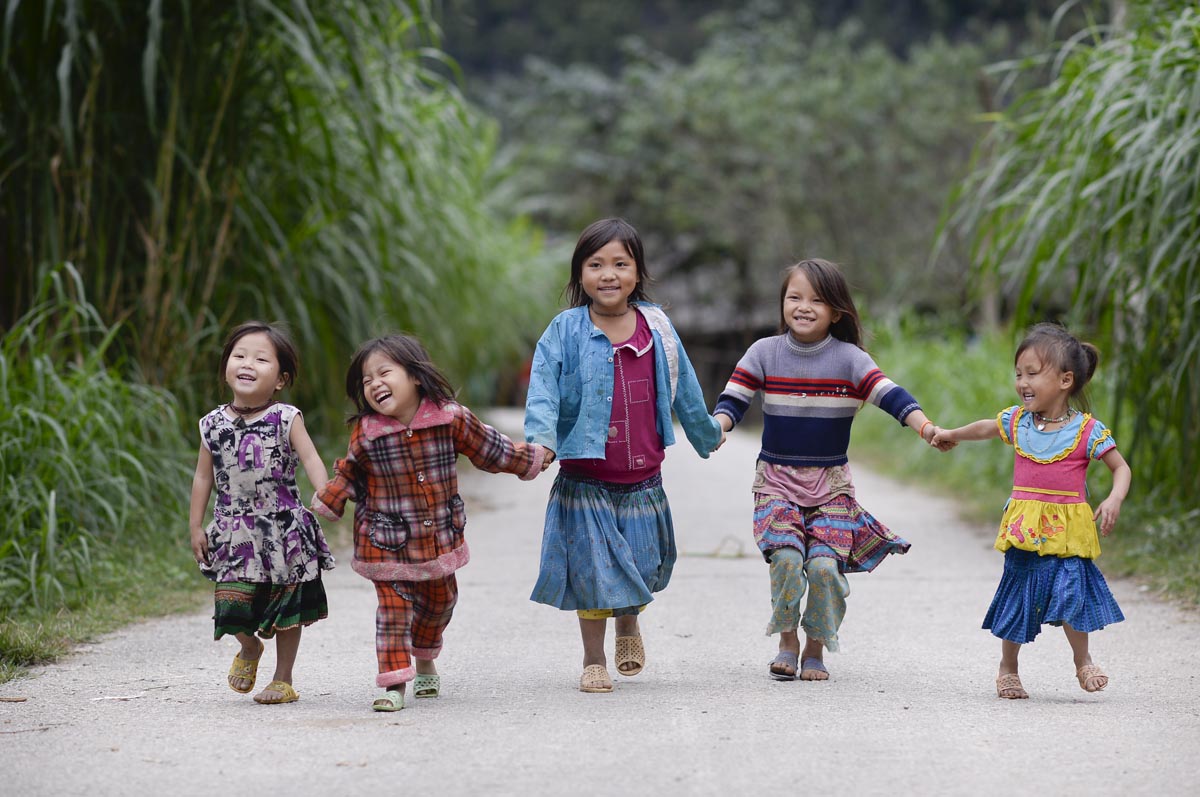
Many of the young people in our study are now married or living with a partner, setting up households and having children of their own. Some have been able to beat the odds to achieve fulfilled and stable livelihoods, but persistent inequalities and patriarchal norms continue to shape and influence young women’s life choices and limit their possibilities for personal and social change.
Young Lives is currently completing its latest in-person survey (Round 7), with participants now entering their third decade of life. This will provide crucial new data on young women’s life course and offer unique insights into enabling female empowerment, including the pivotal role of social protection in unlocking the potential of women and girls in times of crisis.
Photos © Young Lives / Aida Ashenafi/Antonio Fiorente/Ato Mulugeta Gebrekidan Desta/Farhatulla Beigh/Mudupo Sharath Babu/Sebastian Castañeda Vita/Duong Quoc Binh
Young Lives exhibited a brand new photo exhibition at UNICEF's 'We Deserve Better' event during this year's UN Commission on the Status of Women (CSW68). The exhibition is about the challenges girls and young women face as they grow up amid global crises and how gender-responsive social protection can help address the barriers holding them back. Scroll through the 12 images and accompanying annotations to find out more.
The children and families who participate in Young Lives share with us a great deal of personal information about their daily lives and it is important that we protect their anonymity and confidentiality. The photos in this exhibition are not of the Young Lives study children but are of children living in similar circumstances and communities.

Young Lives is a unique longitudinal study that has been following the lives of 12,000 young people in Ethiopia, India (in the states of Andhra Pradesh and Telangana), Peru and Vietnam since 2001.
Originally set up to follow children born at the launch of the Millennium Development Goals, Young Lives provides vital insights into the consequences of growing up in poverty and inequality, informing policies and programs to achieve the Sustainable Development Goals.
This exhibition illustrates the challenges girls and young women face as they grow up amid increasing global crises. The accompanying text highlights how gender-responsive social protection can help address the underlying barriers holding women and girls back.

Mulu is a young Ethiopian woman who had to work after the death of her father and struggled throughout childhood to stay in school. She is now at university, and says,
‘My life will be better than my mother’s because I am educated.’
Like Mulu, many young people in the study have experienced significant improvements in their living standards over the last two decades as global poverty rates have fallen. However, recent global crises, including climate shocks, the COVID-19 pandemic and armed conflict in Ethiopia, threaten to reverse this progress. Inequalities are widening, leaving the poorest and those living in rural or minority communities behind.
Young Lives evidence shows that in times of crises, households tend to revert to traditional, patriarchal gender roles. During the pandemic, women and girls suffered disproportionately from the combined pressures of interrupted education and job losses, alongside increased domestic and unpaid care work.

Experiencing climate shocks – such as drought or floods – early in life can affect children’s growth, nutritional health, skills development and progress in school, with the poorest children significantly more affected.
Young Lives evidence in Ethiopia and Peru shows that social protection, in the form of cash or food transfers and public work schemes, can mitigate the negative effects of early poverty and climate shocks on children’s nutritional health, physical growth and foundational cognitive skills – the basic building blocks for lifelong learning, such as long-term memory and task concentration.

Young Lives’ evidence shows that the impact of climate shocks on pregnant women’s nutrition has repercussions for their children’s skills development, even into adolescence.
Matching Young Lives and climate data in India reveals that a mother’s exposure to droughts or floods during pregnancy affects their children’s vocabulary at age 5 and their basic math and social and emotional skills right up until age 15.
Social protection programs should target adolescent girls, pregnant women and young mothers who may be especially vulnerable to nutritional deficits caused by climate shocks. Supporting young women is crucial not only to safeguard their own health and well-being, but also for their future children’s long-term physical and skills development.

Children from the poorest households, rural areas and minority communities commonly underperform in skills and educational outcomes, with long-term effects on later education and employment opportunities.
Gender differences in skills emerge more strongly in adolescence, with variations across the Young Lives’ study countries exposing the impact of discriminatory gender norms. In India and Ethiopia, girls and boys have similar skills at age 8, but parents’ lower educational aspirations for their daughters are linked to significant gender gaps in math and literacy tests by age 15. Conversely, in Vietnam, girls outperform boys in both tests.
While investing in quality early learning is crucial for all children’s skills development, realizing the long-term benefits for girls requires addressing gender bias and providing a supportive and enabling environment with adequate nutrition, resources and time to study.

While girls and boys have similar social and emotional skills, notable gender differences emerge in late adolescence. In Ethiopia and India, adolescent girls typically develop lower levels of skills associated with empowerment, such as self-efficacy and agency, leaving many young women feeling less in control and less able to handle the challenges of work and family life.
However, gender differences in social and emotional skills are not universal or inevitable. Empowering young women with strong social and emotional skills requires comprehensive support tailored to girls at different ages, often combining education, life skills training and mentorship initiatives.

Young women continue to face obstacles in pursuing higher education, despite recent increases in enrolment. In India, young women are much less likely to complete higher education than young men, especially those from disadvantaged households and minority groups. In Peru, girls expect to earn less than boys, and young women are more likely to study subjects that lead to lower-paid jobs.
Creating supportive environments for girls and young women throughout their studies, ensuring sufficient resources and time to study, is crucial for higher education completion. This may involve expanding scholarships and accessible accommodation facilities, alongside challenging gender stereotypes both within the education system and across wider society.

While better skills can help young women access higher education and secure decent jobs, this is not guaranteed. Gender discrimination and socioeconomic constraints still hold many young women back, especially in times of crisis.
The pandemic significantly widened the gap between the numbers of young women and men in paid work, with women facing prolonged challenges in returning to work – if they were able to return at all – often due to increasing domestic and caregiving responsibilities.
Expanding access to and availability of childcare services is essential for reducing the barriers that hinder women from getting a decent job. This support can play a pivotal role in promoting gender equality and empowering women in the labour market.

Despite falling rates, many girls still get married in their teenage years, particularly those in rural areas and those whose mothers are less educated. Girls who have dropped out of school by age 15 are at much greater risk of early marriage and pregnancy.
Social protection plays a crucial role in tackling the root causes of child marriage. Practical measures to reduce domestic work and increase access to sexual and reproductive health services can also empower girls to stay in school and delay marriage. In Ethiopia, girls benefiting from targeted support under the Health Extension Program are at lower risk of early marriage and pregnancy.

Persistent inequalities and patriarchal norms hinder women’s and girls’ awareness of SRH and access to appropriate services, particularly affecting those from the poorest households, and in rural and conflict-affected areas.
Improving the quality and accessibility of primary healthcare, including SRH services, should target adolescent girls and young women in rural areas, regardless of their marital status or financial means. Priority should be given to challenging gender stereotypes and reducing stigmas, which are often exacerbated during times of crises. These initiatives are more likely to succeed if they engage whole communities, including boys and men, working collaboratively with healthcare personnel, local leaders and civil society.

Global crises are taking their toll on young people’s mental health. Young women were significantly more vulnerable to anxiety as the COVID-19 pandemic became more severe, particularly those who spent additional time on childcare responsibilities. Ongoing conflict in Ethiopia is having a devastating effect on young people’s mental health, including through the debilitating effects of post-traumatic stress disorder (PTSD).
Alongside urgently needed mental health services and psychosocial support, social protection can play an important role in addressing some of the underlying risk factors threatening young people’s mental health, including food insecurity, job losses and financial hardship. Practical measures to relieve the burdens of domestic work and childcare responsibilities are important for protecting the mental health of young women and the next generation of children.

Many of the young people in our study are now married or living with a partner, setting up households and having children of their own. Some have been able to beat the odds to achieve fulfilled and stable livelihoods, but persistent inequalities and patriarchal norms continue to shape and influence young women’s life choices and limit their possibilities for personal and social change.
Young Lives is currently completing its latest in-person survey (Round 7), with participants now entering their third decade of life. This will provide crucial new data on young women’s life course and offer unique insights into enabling female empowerment, including the pivotal role of social protection in unlocking the potential of women and girls in times of crisis.
Photos © Young Lives / Aida Ashenafi/Antonio Fiorente/Ato Mulugeta Gebrekidan Desta/Farhatulla Beigh/Mudupo Sharath Babu/Sebastian Castañeda Vita/Duong Quoc Binh

